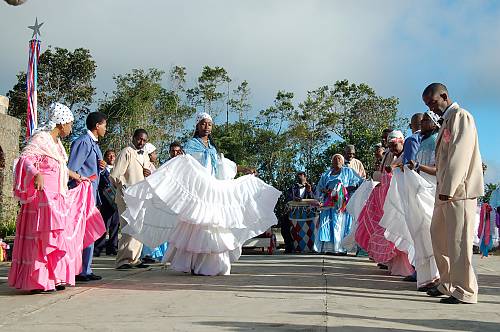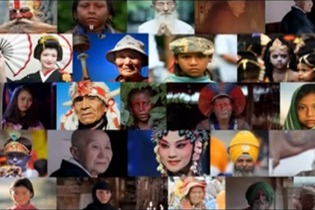Countries of Central America and the Caribbean come together to safeguard their Afro-descendant living heritage
 |
| The dance, song and drumming style known as Tumba Francesa was brought to Cuba by Haitian slaves © UNESCO/René Silveira Toledo |
Belize, Costa Rica, El Salvador, Guatemala, Honduras, Nicaragua, Panama, and the Dominican Republic, all States Parties to the 2003 Convention, are the eight member States of the Central American Integration System(SICA). Together with Cuba, they have agreed during a recent meeting of the Council of Ministers of Culture and Education of the SICA Educational and Cultural Coordination (CECC/SICA) to implement a safeguarding strategy for the cultural heritage of Afro-descendant communities.
This initiative is supported by Regional Centre for the Safeguarding of the Intangible Cultural Heritage of Latin America (CRESPIAL), a Category 2 Centre under the auspices of UNESCO (C2C) based in Peru, together with the Central American Black Organization (CABO), an international network made up of multiple civil society organizations representing Afro-descendant communities. The UNESCO Cluster Office in San José will also be actively involved in this initiative.
The initiative aims to establish a pool of people prone to promote and safeguard the intangible cultural heritage of the various Afro-descendant communities in Central America and the Caribbean. Community-based inventories will be rolled out to identify elements and existing threats to the practice and transmission of living heritage. While promoting the exchange and dialogue between the communities in different countries, the project advocates for an inter-regional collaboration in line with the 2030 Agenda for Sustainable Development.
This initiative also seeks to strengthen the capacities of participating States and civil society organizations to guarantee respect for the cultural rights of Afro-descendant communities, involving them in the decision-making processes of public policies that concern them and their heritage.
There are several inscribed elements from the countries involved in this project whose practitioners and bearers are Afro-descendants, such as:
• Language, dance and music of the Garifuna (Belize, Guatemala, Honduras and Nicaragua)
• Cocolo dance drama tradition (Dominican Republic)
• La Tumba Francesa (Cuba)
• Ritual and festive expressions of the Congo culture (Panama)

Address: 81, Laiguangying West Road, Chaoyang District, Beijing, China
Zip Code: 100021
Tel: 86-10-64966526
Fax: 86-10-64969281
E-mail: crihap@crihap.cn
Leave us your e-mail address, we'll let you know about current events.



